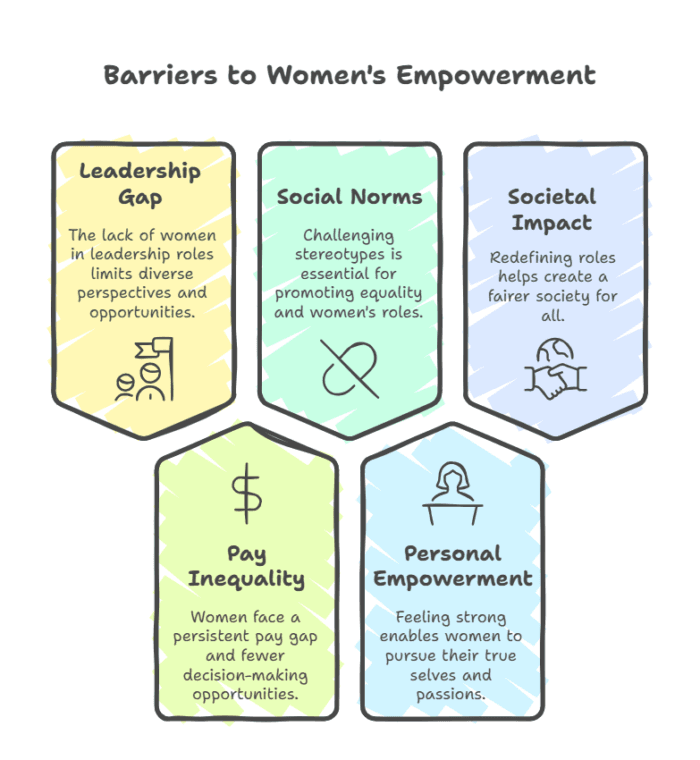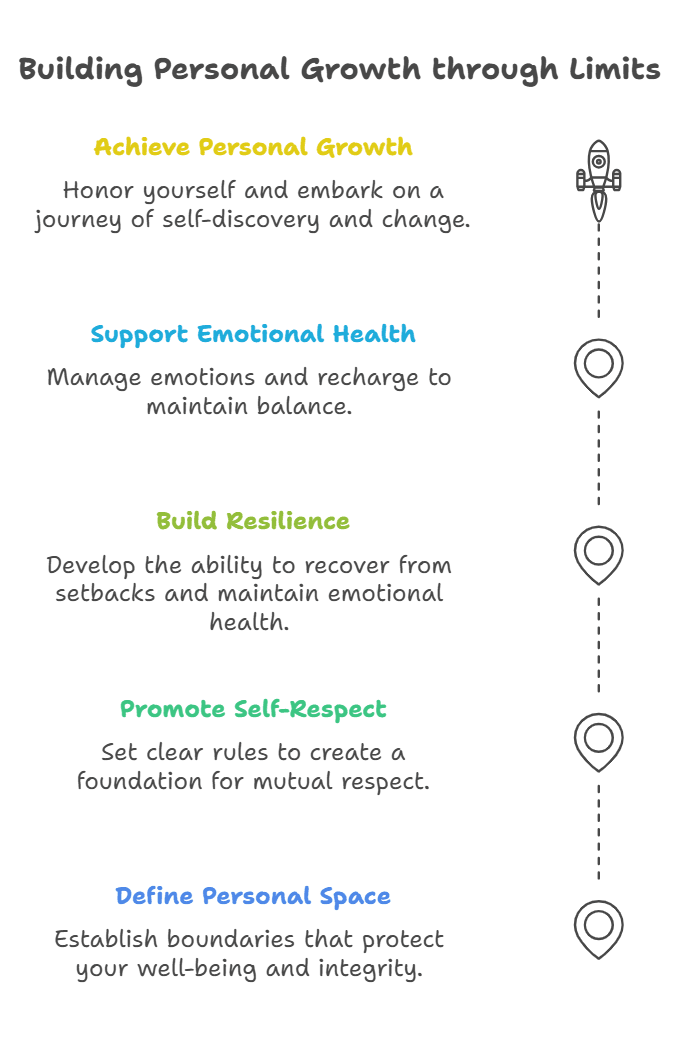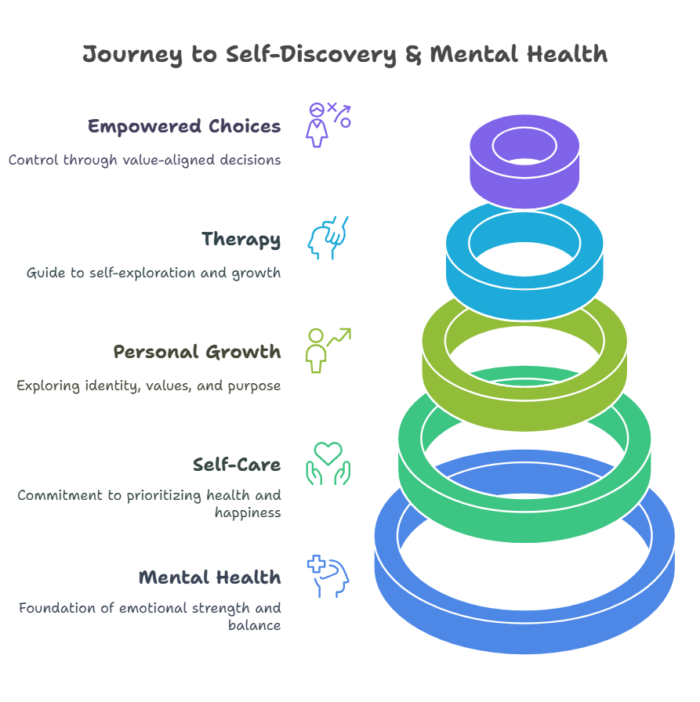Did you know that 85% of people struggle with self-doubt at some point in their lives.
Imagine a moment when you felt unstoppable when you realized your own strength and took control of your life. Reflecting on such moments can be a powerful way to understand your abilities, face challenges, build confidence for the future, and be strong.

Feeling strong is more than just a fleeting emotion, it’s a mindset that helps you take charge of your life, make decisions that align with your values, and believe in your ability to achieve your goals.
By the end, you’ll learn how to identify your strengths, set meaningful goals, and take steps toward a more empowered and fulfilling life.
Table of Contents
What Does It Mean to Feel Strong?
Feeling strong is more than just a word, it’s a mindset. It’s the feeling of being in control of your life, making choices that match what you believe in, and trusting in your ability to reach your goals.
This feeling often comes after facing tough times, standing up for yourself, or doing something you once thought you couldn’t.
Key Parts of Feeling Strong:
Confidence: Believing in your abilities and decisions.
Autonomy: Taking charge of your life and choices.
Resilience: Bouncing back from setbacks stronger than before.
Purpose: Feeling aligned with your goals and values.
Examples of Feeling Strong
Let’s look at some real-life stories where people felt strong. These examples will help you see how this feeling can show up in different parts of life.
1- Work Strength: Getting a Dream Job
Example: Sarah worked in a job she didn’t like for years. She decided to take a chance, update her resume, and apply for a job she loved. After months of hard work, she got the job. When she got the offer, she felt strong—she had taken control of her career and shown herself she could reach her goals.
2- Personal Strength: Facing a Fear
Example: John was always scared of speaking in public. When his boss asked him to present at a meeting, he decided to face his fear. He practiced a lot, got feedback, and gave a presentation that everyone loved. That moment made him feel strong, knowing he could beat his fears.
3- Community Strength: Standing Up for a Cause
Example: Maria cared a lot about the environment but had never done anything about it. She joined a local group working on sustainability and led a successful effort to reduce plastic waste in her area. This made her feel strong, knowing she could make a difference.
Why Thinking About Feeling Strong Matters
Thinking about times you felt strong is important for growing as a person. It helps you:
- See Your Strengths: By looking back at moments where you felt strong, you can see the skills and qualities that helped you succeed.
- Build Confidence: Remembering past wins can make you feel better about yourself and remind you of what you can do.
- Learn from Tough Times: Feeling strong often comes after facing challenges. Thinking about these times can help you get better at handling hard situations.
- Set Goals: Knowing what makes you feel strong can help you set goals that matter to you.
How to Think About a Time You Felt Strong
Now that we’ve talked about what it means to feel strong and why it’s important, let’s look at how you can think about your own experiences. Here’s a simple guide to help you:
1- Find a Moment of Strength
Think about a time when you felt in control, sure of yourself, and able to handle things. It could be a big win or a small success.
Ask yourself: What was happening? What did I do? How did it make me feel?
2- Look at the Experience
Break the experience into smaller parts. What led to that moment? What did you do? What challenges did you face?
Ask yourself: What skills or qualities did I use? What did I learn from this?
3- Connect It to Your Life Now
Think about how that moment of strength has affected your life since then. Has it changed how you handle challenges or make decisions?
Ask yourself: How can I use what I learned from that experience in my life now?
4- Write It Down
Writing about your experience can help you understand your thoughts and feelings. Write down what happened, how it made you feel, and what you learned.
Ask yourself: What would I tell someone else going through something similar?
5- Take Action
Use your reflection to help you grow. Set a goal that matches your values and take steps to reach it.
Ask yourself: What’s one thing I can do today to feel strong again?
Steps for Knowing Yourself and Growing
Knowing yourself and growing as a person are connected processes that need both thinking and action. Here are some steps to help you start:
1- Know Your Values
Your values guide your life and affect your choices. Start by asking yourself what you admire in others, what makes you feel good, and what you care about.
Writing down and ranking your values can help you live in a way that feels true to you.
2- See Your Strengths
Tools like the VIA Survey of Character Strengths can help you see what you’re good at. Taking these tests and thinking about how you can use your strengths every day can make you feel better and more fulfilled.
3- Understand Your Personality
Knowing your personality traits can help you understand how you act and what you like.
Tests like the Big Five Personality Traits can give you a clearer picture of who you are and guide your growth.
4- Think Regularly
Knowing yourself is an ongoing process. Regular thinking helps you see past what others expect and what you limit yourself to, showing your true self.
Writing, meditating, or talking to a therapist or coach can help with this.
5- Try New Things
Trying new things can help you learn more about yourself. Whether it’s a new hobby, traveling, or meeting new people, stepping out of your comfort zone can teach you a lot and help you grow.
6- Set Personal Goals
Setting and working toward goals that match your values and strengths can give you direction and motivation.
Check your goals often to make sure they still fit as you grow.
By following these steps, you can start a journey of knowing yourself and growing, leading to a life that feels true and strong.
Ways for Women to Handle Social Pressures and Build Confidence
Building confidence is a key part of growing as a person and can affect many areas of life, like relationships, health, and work success.
For women, who often face unique social pressures, building confidence can be especially important.
1- Stop Comparing Yourself to Others
Comparing yourself to others can make you feel bad about yourself and lead to negative thoughts. Instead, focus on your own growth and successes to feel better about yourself.
2- Be Kind to Yourself and Set Limits
Women often put others first, but taking time for yourself is important. Recognizing and dealing with the reasons for low self-esteem is a key step in building confidence.
3- Use Positive Thoughts
Replace negative thoughts with positive ones about your abilities and worth. This can help you feel better about yourself over time.
4- Set Realistic Goals
By reaching small, doable goals, women can feel a sense of achievement and build confidence for bigger goals. This process helps you see what you can do.
5- Be Boldly Confident
Lisa Bilyeu, a well-known figure, talks about the importance of feeling strong and sure of yourself.
Her approach includes imagining yourself as the most confident version of you and acting that way, which can lead to big changes in your life.
In the end, building confidence is a journey that involves different steps and practices.
By focusing on being kind to yourself, using positive thoughts, setting goals, and being boldly confident, women can handle social pressures and feel stronger, leading to a more fulfilling life.
Dealing with Social Barriers

Dealing with social barriers is important for creating a space where women can start a journey of knowing themselves and growing. One big barrier is the lack of women in leadership roles.
Even with progress in education, women still face a pay gap and fewer chances in decision-making roles.
With only a small number of leadership positions held by women worldwide, the lack of diverse views in leadership affects policy-making and economic chances for women.
Challenging social norms and stereotypes is another key step toward equality. These deep-rooted beliefs push the idea that women are less capable than men in many areas.
By changing these norms, we can support equality, expand women’s roles in society, and improve their economic independence and overall well-being.
Feeling strong helps women break free from social expectations, find their true selves, and follow their passions, leading to meaningful lives.
This journey of knowing themselves lets women redefine their roles and actions, helping create a fairer society.
Benefits of Setting Personal Limits

One key benefit of setting limits is promoting self-respect and strength. By setting clear rules, you can create a base for mutual respect and feeling strong.
Setting personal limits is important for feeling strong and helping with knowing yourself and growing.
These limits are rules you set to protect your well-being and integrity. They define your personal space, independence, and emotional health in relationships.
Knowing the impact of personal limits not only builds resilience but also improves relationships, helping you live a more fulfilling life where you feel in control.
Limits are key for keeping healthy relationships, taking care of yourself, and growing as a person. They define what behavior, time, and energy are okay, and give a structure for how you interact with others and share your needs.
By clearly stating your needs and setting limits on what you will and won’t accept, you can protect your sense of self and ensure your well-being.
Also, setting personal limits can build resilience and support emotional health. Clear rules on time, energy, and personal space help you manage emotions, keep a sense of control, and recharge when needed.
This lowers the risk of trauma-related issues and helps you stand firm in relationships and daily interactions. Limits create safety and are key for building resilience and emotional health.
In the end, limits aren’t about building walls but about creating a safe space where you can live and grow. They are the base for personal growth, helping you honour yourself, set independence, and start a journey of knowing yourself and changing.
The Role of Mental Health

Mental health is a key part of the journey of knowing yourself and growing. It acts as both a foundation and a guide in this personal process.
Mental health isn’t just the absence of illness but a state of emotional strength, balance, and inner peace. It includes a range of emotions and conditions, affected by things like genes, environment, and life experiences, which can change how we feel.
For many, especially women facing social pressures, the journey to knowing yourself can be both hard and transformative. The process involves exploring and understanding your identity, values, beliefs, and purpose.
This exploration is key for personal growth and has big effects on mental health and overall well-being.
Taking care of yourself and loving yourself are important parts of this journey, building a base of self-worth and confidence that helps you handle life’s challenges with strength and positivity.
Self-care, often seen as just a trend, is really a commitment to putting your health, well-being, and happiness first. It’s linked to better mental health outcomes like higher self-esteem, more optimism, and a positive outlook on life, while also reducing anxiety and depression.
Seeing the importance of mental health in knowing yourself is key; it validates the struggles people face and shows the need for understanding and support.
Therapy can be a helpful tool in this journey, acting as a guide to show hidden parts of yourself, helping you grow, and leading to a more aware and fulfilling life.
Therapy gives a safe space to explore your identity, process your emotions, and develop ways to support your mental health.
Also, making your own choices plays a big role in mental health recovery and knowing yourself. By taking control of your life and making choices that match your values and goals, you can greatly affect your journey toward wellness.
Making your own choices helps you face mental health challenges with determination, strength, and hope, leading to a deeper understanding of yourself and your abilities.
Tips to Feel Strong Every Day
Feeling strong doesn’t have to be only for big moments. Here are some tips to help you feel strong in your daily life:
- Set Small, Doable Goals: Break big goals into smaller tasks. Celebrate each small win to build confidence.
- Be Kind to Yourself: Treat yourself well, especially when things don’t go as planned. Remember that mistakes are part of growth.
- Surround Yourself with Supportive People: Build a network of friends, family, or mentors who encourage and believe in you.
- Take Care of Your Body and Mind: Exercise, eat well, and practice mindfulness to boost your energy and focus.
- Learn New Things: Keep challenging yourself to learn and grow. Whether it’s a new hobby or a work skill, learning can boost your confidence and independence.
Final Thoughts
Thinking about a time you felt strong is more than just looking back, it’s a powerful way to grow.
By remembering those moments, you can see your strengths, build confidence, and set meaningful goals for the future. Feeling strong isn’t a one-time thing; it’s a mindset you can build every day.
Action Steps:
- Find a moment of strength.
- Look at the experience and connect it to your life now.
- Write down your thoughts and what you learned.
- Set a goal and take action to feel strong again.
We’ve explored what it means to feel strong, shared real-life examples, and provided practical steps to help you reflect on your own experiences.
Feeling strong is about recognizing your abilities, taking control of your life, and believing in your potential to overcome challenges.
By revisiting moments of strength, you can gain valuable insights into your strengths, build confidence, and set meaningful goals for the future.
Now it’s your turn to take action. Reflect on a time you felt strong, write down your thoughts, and set a goal that aligns with your values. Remember, feeling strong isn’t a one-time event, it’s a mindset you can cultivate every day.
So, what’s one thing you can do today to feel strong again? The power to take control of your life is in your hands. What will you do with it?
FAQs
Q1: How do I identify a moment when I felt empowered?
A: Think about a time when you felt in control, proud, or capable—big or small. Ask yourself: What did I achieve? How did it make me feel?
Q2: Why is reflecting on empowerment important for personal growth?
A: It helps you recognize your strengths, build confidence, and learn from challenges, guiding you to set meaningful goals for the future.
Q3: How can I feel empowered in my daily life?
A: Set small, achievable goals, practice self-compassion, and surround yourself with supportive people. Celebrate every win, no matter how small!
Q4: What if I can’t think of a time I felt empowered?
A: Start small! Reflect on moments when you overcame a fear, helped someone, or learned something new. Empowerment doesn’t have to be a big event.
Q5: How can I use my past empowerment experiences to achieve future goals?
A: Break down what made you feel strong, your skills, mindset, or actions and apply those lessons to new challenges. Use your past wins as motivation.

